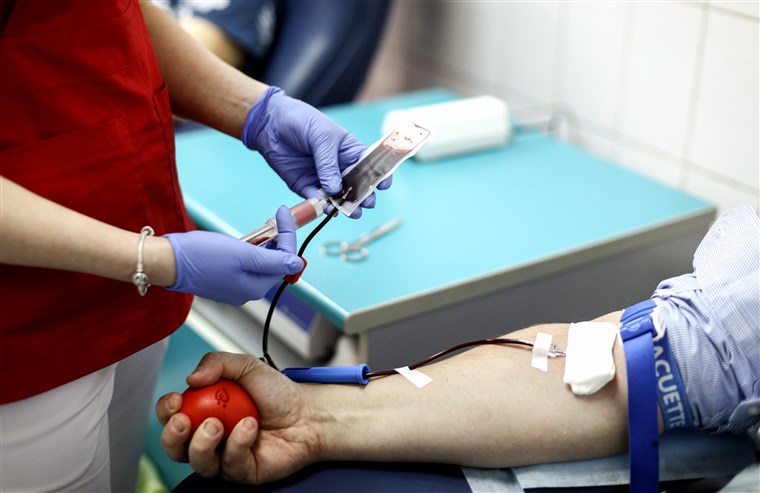
With January being National Blood Donor Month, it might be time for you to consider donating and helping out some individuals who may have dire need of that blood to recover from life-saving surgery. In Water Valley and elsewhere in this country, blood donations are extremely important because they often do help to save lives, and even in less critical situations, blood transfusions are important for conducting many types of surgery. Senior home care professionals are aware of this, and sometimes make blood donations themselves, and it’s something that each of us should consider, as a means of lending a hand to someone whose life may eventually depend on it.
Health benefits of donating blood
It is known that every two seconds, someone in the United States has need of blood, and it is also known that a single blood donation from one individual has the potential for saving as many as three lives. These are amazing statistics, which make clear the tremendous value that donating blood has in this country, and how much it is needed every single day.
However, you may not have been aware that there are certain health benefits that accrue to blood donors as well. There are a number of benefits that can improve your emotional and physical health, as outlined in the report that was recently issued by the Mental Health Foundation. This report detailed how blood donors often experienced lower stress levels, and how it helped them eliminate negative feelings in their lives.
Donating also promotes a sense of belonging, while reducing the feeling of isolation which commonly affects many people. These feelings, in turn, led to a greater sense of emotional well-being and improved physical health. People who donate blood also receive an indirect health benefit because they’re required to participate in a health screening which will check their hemoglobin levels, body temperature, pulse, and blood pressure.
This amounts to a kind of mini-physical that can provide important information about your health. It might detect problems that could be signs of underlying medical conditions or possibly risk factors for some kinds of disease. Because it’s important that your blood be completely disease-free, it is checked for West Nile virus, hepatitis B, hepatitis C, syphilis, and HIV. So anyone undergoing health screening prior to blood donation will probably find out that they are free of all these diseases, and that can provide peace of mind that will also contribute to your sense of well-being.
Blood donation side effects
it is entirely safe for healthy adults to donate blood regularly, and there’s absolutely no risk of contracting disease because sterile equipment is used for all donors, and then discarded. Some people who donate blood will temporarily feel lightheaded or slightly nauseous after the procedure, but it will normally only last for a few minutes.
For most people, lying down with elevated feet will generally make them feel much better in a short period of time. It’s also possible to experience bleeding at the site where the needle was injected, but this can usually be overcome by applying pressure at the site and raising your arm for a few minutes. In some cases, a bruise will develop at the injection site, but this is relatively uncommon.
If you do feel lightheaded or nauseous after donating blood, and you’ve had time to rest up and consume some refreshment, you should contact your blood donation center. If you experience continued bleeding at the site where you were injected, or if you see a raised bump there, that’s also a reason you should contact your blood donation center. Lastly, some people do experience ongoing tingling or numbness in their arm, and that should also be discussed with your blood donation center.
Before you donate
Some of the things you should be aware of before you donate are that you must be 17 or older to donate in most states, although other states permit donations at 16, provided you have parental consent. You must also be in good health to donate and must weigh at least 110 pounds. It will be necessary for you to provide information about any medical conditions you might have, as well as any medications which you’re currently taking because these can affect your eligibility.
It will be necessary for you to wait at least eight weeks before you are eligible to donate again, although platelet donations can be made as frequently as once a week, up to 24 times in any given year. To help you prepare for the actual blood donation procedure, you should drink 16 ounces of water prior to your appointment time.
You should also have a healthy meal which contains low-fat content, and be sure to wear either a short-sleeved shirt or one which has easily rolled-up sleeves. If you like, you can alert the staff personnel to your preference for sitting up or lying down during the procedure. While the procedure is in progress, you may feel more comfortable if you’re reading, listening to music, or talking to a friend.
